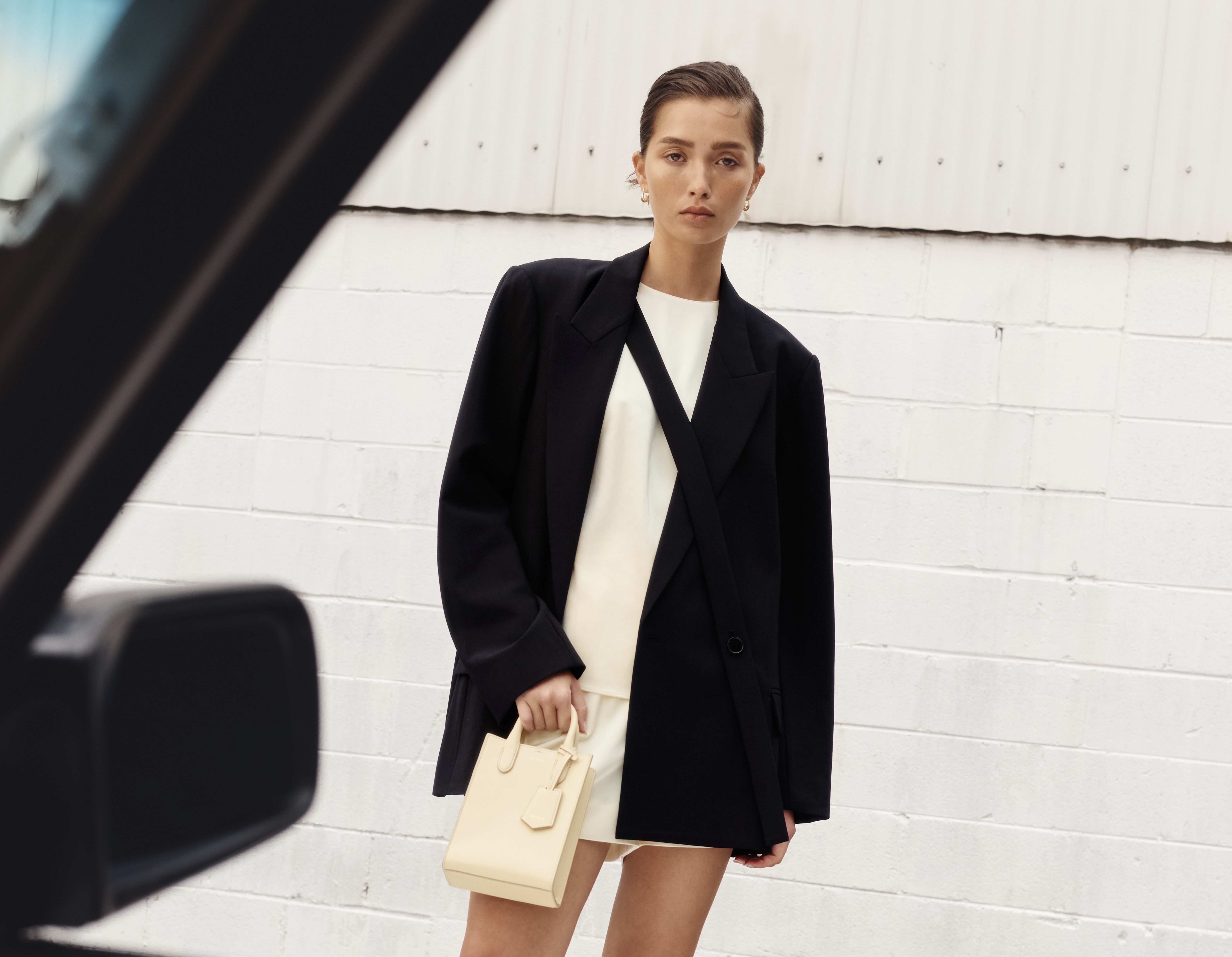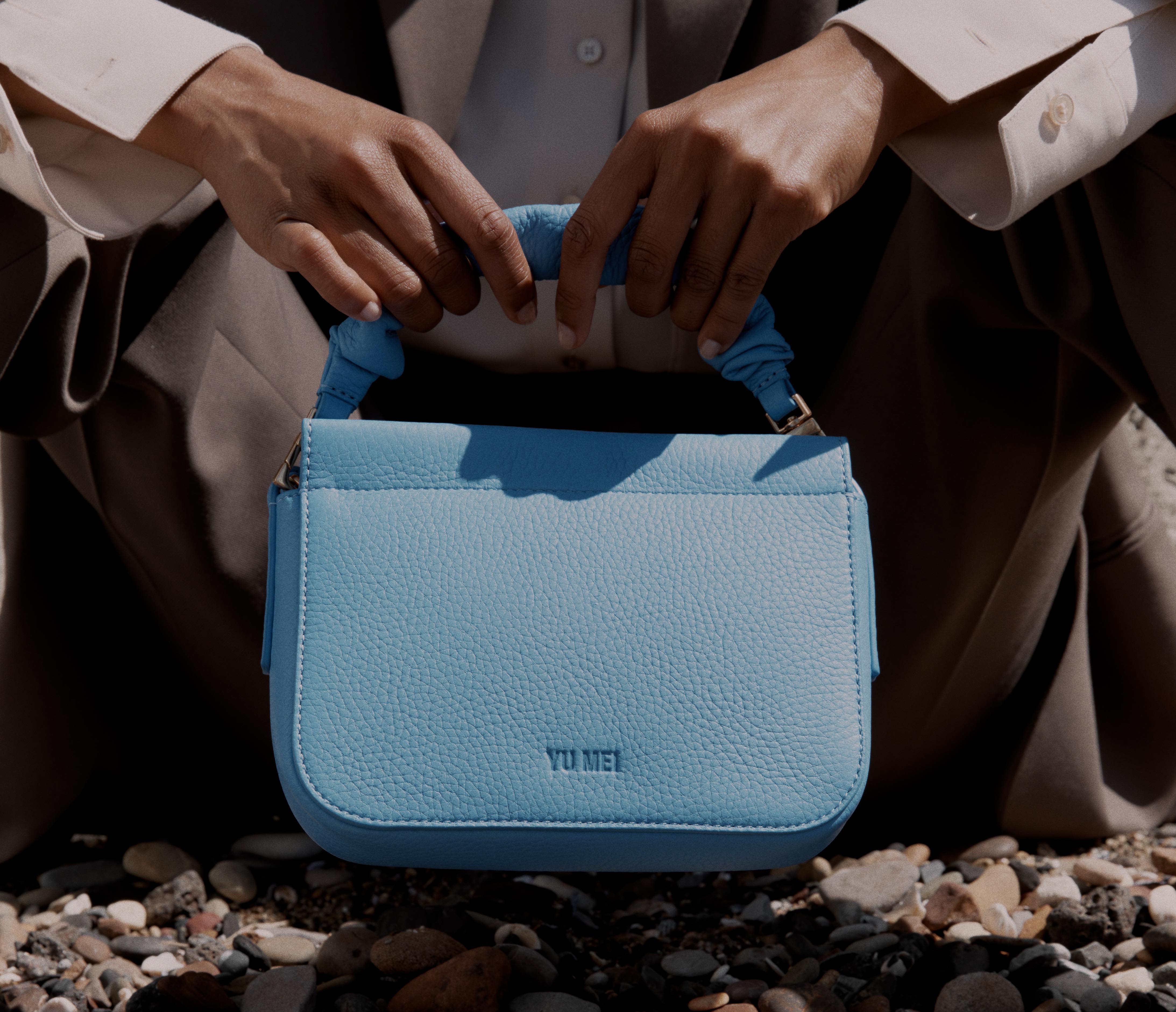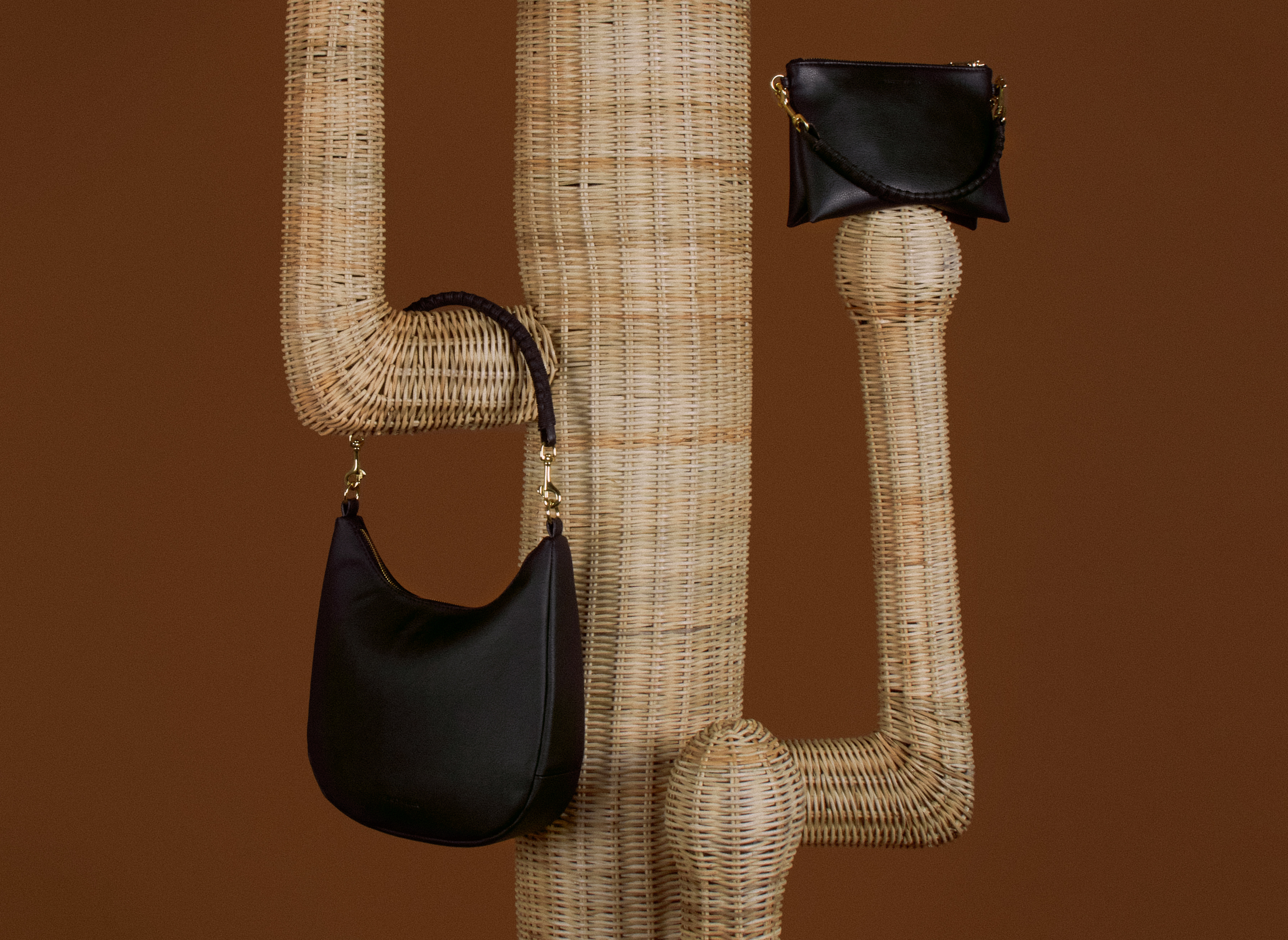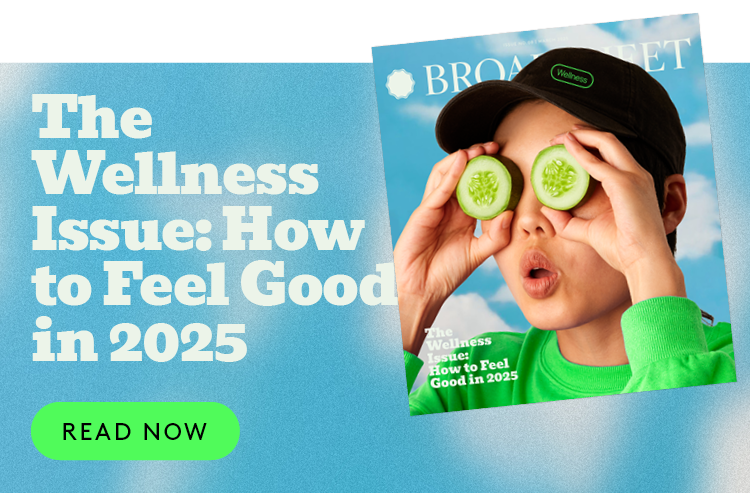Did you know that Italy is the second largest European producer of apples? Most of its harvest is used in the production of apple juice and concentrate, leaving almost 30,000 tons of dried materials behind as waste.
Mable, a sustainable Italian textile manufacturer and supplier, has spent the past decade refining its Appleskin technology to create a more sustainable, vegan alternative to leather. This innovative material has proved an appealing option for brands seeking substitute materials in their collections. And Oroton’s just-launched Muse Apple range shows why.
Lightweight, durable and with a matte finish, the apple leather products slot seamlessly into the brand’s signature collection of handbags and wallets.
“Apple leather is water resistant, and the subtle texture makes the material less prone to show signs of wear and tear from daily use,” says Sophie Holt, Oroton’s creative director. “The materials used to make the range, including the linings, main material and glue, are all plant-based”.

Longevity is a word that gets thrown around a lot when it comes to making investment purchases. But have you ever thought about what will happen to your handbag in 300 years? This is a question that keeps Jessie Wong awake at night.
For the founder of New Zealand-based label Yu Mei, sustainability is the starting point of each and every business decision. After being introduced to deer nappa leather while studying in Dunedin, Wong developed an affinity for the supple material and learned how to sew with it. The skins – a venison industry by-product that would otherwise become landfill – have the perfect collagen and protein structure to tan into leather.
“From a design standpoint, all Yu Mei bags have functionality, utility and a practical sense baked into them,” she says. “And deer nappa is such a soft, beautiful, luxurious but also long-lasting material to work with.”
The brand has built a steadfast following for its draping totes, structured crossbodies and perfectly petite mini bags. And Wong believes that being able to carry your laptop, lunch and basically everything but the kitchen sink to work or university is just as important as being able to dance hands-free until dawn. “Yu Mei bags are not driven by trends,” she says. “Most customers start with a larger bag and then build up their set. Our new product development is more focused on the trajectory of meeting our customers’ daily needs”.

“We looked at vegan options and spoke to various manufacturers and then shared what we learned back with our followers,” she says. “Ultimately, I think you have to look at sustainability holistically and weigh up all the factors at play. What is the water consumption? Is it a plastic? After evaluating what mattered most to me, deer nappa is the best option for Yu Mei to use at the moment. That includes working with certified tanneries that are well managed and chrome-free”.
Provenance is one pillar of the brand’s regeneration statement, but stewardship and care are just as important. It offers a care education program, and sells a conditioning balm and protector spray. “We offer that knowledge [for product care] but we also incentivise it with a buyback program. The better you look after your bag during its life with you, the more credit you will receive for a new purchase. We think that the end of your journey with a bag is not the end of the bag’s journey.”
The buyback bags, as well as one-off pieces made from scrap leathers and leftover hardware, are sold during a once-a-year archive event. In 2022, there was a queue of some 30,000 people to shop the digital sale.

Continually evolving practices is also key for fellow Kiwi brand Deadly Ponies. “Quality, ethically sourced leather is what Deadly Ponies is known for, but we don’t want to stay stagnant in our investigation process,” founder and designer Liam Bowden says.
The brand’s newest collection of cactus leather pieces comes after years of searching for a viable alternative material. “Our cactus leather is a man-made material sourced from an organic cactus plantation, a by-product of the pharmaceutical industry. Only the mature leaves are harvested to ensure sustainable plant regeneration. They are then sun-dried and moved to our tanning facility,” Bowden says.
The cactus pieces will naturally wear differently to traditional leather, but they have better resistance to UV light, water and more recyclability options. “Our key objective was to create an alternative option for our classic range without compromising on the iconic buttery texture we’re known for. We found that cactus leather was the perfect long-lasting balance of soft and sustainable,” Bowden says.
We hope you like the products we recommend on Broadsheet. Our editors select each one independently. Broadsheet may receive an affiliate commission when you follow some links.













